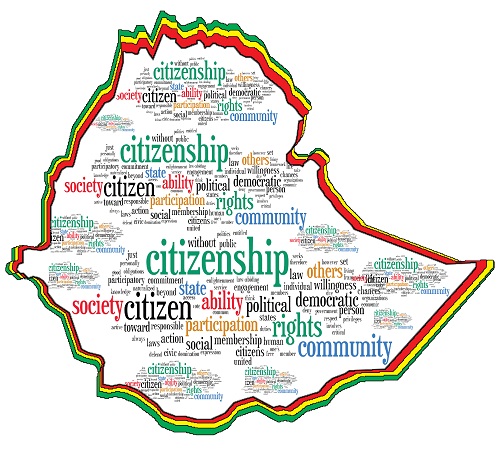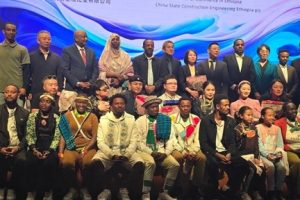
History has it recorded that Ethiopia has been introduced with political parties in the late 1960s, though highly marred by discouraging chronicles as many had to pay the highest price to realize true political landscape.
Thus, multiparty political system is a recent phenomenon to Ethiopia. It was officially introduced when the FDRE Constitution was adopted in 1995. Since the overall goal of a political party is bidding clear alternative ideologies to citizens and thereby assuming power by winning election, any party, right from its inception, functions by rallying people with similar points of view on the ideologies and alternatives it resides on.
Many agree that a “strong” party is a party that presents voters with a coherent policy agenda on both sides. As the wave of democratization has shined in Africa as elsewhere in the world, taking many different shapes and forms, Ethiopia also passed through various political changes: from the iron fists of imperial regime and the so-called Marxist military rule to the revolutionary democracy for decades. Yet, the progress has still remained to be a meager one.
Despite that the constitutional guarantee made to multiparty system has led the nation to the mushrooming of political parties over less than a period of three decades. And one that has been entailed along with and even considered by some as a “problem” is the fact that several parties focus on ethnicity than alternative political ideologies. Most of the parties rely on ethnicity which adversely affects the emergence of strong political parties with broader national agendas, some analysts say.
Other politicians say that having parties with ethnic foundation by itself is not a problem. For them, there is nothing wrong with the parties’ priority to draw membership and acceptance of the specific ethnicity they promote. The problem is their lack of viable policy alternatives and ideology. On the other hand, multinational parties with the focus of citizenship politics are highly confined to cities, especially to the capital city; whereas the great majority of the population is residing in the rural areas.
Prime Minister Dr. Abiy Ahmed called upon all parties to come united with strong and viable ideologies, strategies and policy alternatives. Taking the conducive political space as a sound opportunity and aiming to come strong, some political parties recently announced readiness to come united. However, the public needs to hear more of that unification news accompanied by national policy frameworks and unity.
So the question is do multinational parties have the space to operate nationwide in the Ethiopian context? What should be done in letting fellow citizens to participate in any political party? Chairman of the Oromo Federalist Congress, Dr. Merara Gudina recalls that the Constitution acknowledges both ethnic based and multinational political parties to operate. In his view, fellow citizens should prefer which party they want to be engaged in. It is up to citizens to decide which alternative safeguards their benefits and promote their interests.
The questions of citizenship are intimately connected with the questions of identity. As to him, as far as political parties hold clear political ideology, it would not be a problem either being they rely on citizenship politics or ethnicity as both end up undisputed at the end of the day. Ethiopia has opened equal opportunity and it is great opportunity; so all parties in their respective convections should work in respecting rule of law, as well as human and democratic rights, he added.
The government should keep on fine tuning balance where as the media houses should treat each party equally, he added. Mulatu Gebremariam, a sociologist here in Addis, doesn’t agree with that idea. As to Mulatu, the ethnic based party formation orientation is highly connected to the nature of political institutions, and miscalculation of gaining political advantage at the expense of other ethnicities. As to him, the problem now reaches at the point of no return which may lead to deadlock among political parties.
In his view, a quest for ethnicity is human. There is a natural tendency to show affection and respect and affinity regardless of competition for natural resources. He says that ethnicity has lost its natural meaning during the past two decades, and turned out to be resource competition whose rebounding effect is “xenophobia” kick off “outsiders” from their mother land. That is also the reason why the current Ethiopia political landscape has led to the mushrooming of ethnicbased politics, he added.
He further noted that 27 years back, when EPRDF led government took power democratization process resulted in the re-affirmation of ethnic identities, with political parties emerging along ethno-regional criteria rather than ideological ones. The approach could not mingle both ethnicity and citizenship harmoniously.
In my view, he keeps on saying; through time we could nurture citizenship political ideology to regain its venue, by revisiting the charter for the natural meaning of ethnicity and come up with establishment of law that can protect citizen live with different ethnic back ground. Furthermore, awareness creation on new blood as well on the leadership should be framed towards that end.
The Ethiopian Herald, December 26/2018
BY BY MENGISTEAB TESHOME





